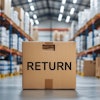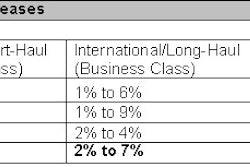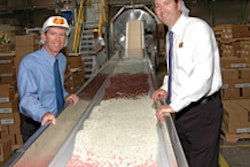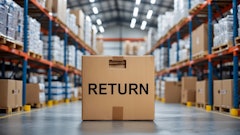Shanghai — November 14, 2008 — Travel and entertainment (T&E) spend has consolidated its position as the second largest controllable cost for companies within China this year, according to the 2008 China Business Travel Survey from American Express Business Travel.
The survey, called the Barometer, was announced at the recent American Express China Business Travel Forum (CBTF) held in Shanghai. According to American Express, the Chinese business travel market continues to be largely driven by the domestic market, meanwhile travel policy compliance has improved and is reinforced with new concerns regarding environmental issues and employee safety and security.
Business travel is now becoming more managed, with more controls and methods to monitor travel expenses. In addition, the use of the Internet not only is becoming more common for business travel requirements but also has reached a level of maturity that shows that companies are in a need of tools capable of fulfilling their cost reduction targets, American Express said.
More organizations are turning to travel agencies for their business travel requirements, the survey showed. There was strong interest in full travel management, which demonstrates that companies are firmly engaged in the management of total expenditure and implementing process and purchasing controls, according to American Express.
The Barometer shows continued growth in T&E expenses in China:
The Barometer reveals that companies in China have been giving consistent focus to optimize and control T&E expenses. Over the last three surveys the focus on employee efficiency has been a growing concern while cost still remains important in devising T&E policy; 70 percent of the companies surveyed indicated that they have a formal T&E policy.
This year, a major trend is emerging — employee care is extending beyond efficiency. Staying in contact on a continuous basis with employees on business trips is now becoming a major asset for companies in the face of changes in business and world disruption. As a result 93 percent of companies declare they have put in place security rules.
With environmental concerns increasing in importance, 44 percent integrate environmental issues into their travel policy and more companies are implementing measures to protect the environment.
The survey also shows that the overall compliance rates remain stable: 51 percent of surveyed companies achieve compliance rates above 50 percent, which has increased by 4 percent compared to last year (47 percent).
"It is pleasing to see more structure being applied to business travel management in China," said Gregor Lochtie, general manager China, CITS American Express Business Travel. "The Barometer has indicated that companies operating in China are constantly looking for opportunities to optimize and control their T&E expenses and recognize it as an investment that can add to their bottom line."
Further findings of the Barometer include:
The survey, called the Barometer, was announced at the recent American Express China Business Travel Forum (CBTF) held in Shanghai. According to American Express, the Chinese business travel market continues to be largely driven by the domestic market, meanwhile travel policy compliance has improved and is reinforced with new concerns regarding environmental issues and employee safety and security.
Business travel is now becoming more managed, with more controls and methods to monitor travel expenses. In addition, the use of the Internet not only is becoming more common for business travel requirements but also has reached a level of maturity that shows that companies are in a need of tools capable of fulfilling their cost reduction targets, American Express said.
More organizations are turning to travel agencies for their business travel requirements, the survey showed. There was strong interest in full travel management, which demonstrates that companies are firmly engaged in the management of total expenditure and implementing process and purchasing controls, according to American Express.
The Barometer shows continued growth in T&E expenses in China:
- 42 percent of organizations surveyed report an increase of their T&E budget over the last 12 months.
- Domestic travel still dominates the market, with an increase this year for foreign-owned companies. T&E expenditure in Mainland China by foreign-owned companies rose to 59 percent in 2008, from 56 percent in 2007, suggesting that these organizations are working to develop and increase market share within China.
- The Chinese business travel market is very similar to the U.S. market in that it is self-sufficient and the majority of expenditure take place domestically.
- T&E is regarded as an investment instead of a cost center, with the main purpose of business travel being to develop or maintain business in both existing and new markets.
- T&E has consolidated its position as the second largest controllable cost for companies within China in 2008, with an increase of 7 percent versus 2007.
The Barometer reveals that companies in China have been giving consistent focus to optimize and control T&E expenses. Over the last three surveys the focus on employee efficiency has been a growing concern while cost still remains important in devising T&E policy; 70 percent of the companies surveyed indicated that they have a formal T&E policy.
This year, a major trend is emerging — employee care is extending beyond efficiency. Staying in contact on a continuous basis with employees on business trips is now becoming a major asset for companies in the face of changes in business and world disruption. As a result 93 percent of companies declare they have put in place security rules.
With environmental concerns increasing in importance, 44 percent integrate environmental issues into their travel policy and more companies are implementing measures to protect the environment.
The survey also shows that the overall compliance rates remain stable: 51 percent of surveyed companies achieve compliance rates above 50 percent, which has increased by 4 percent compared to last year (47 percent).
"It is pleasing to see more structure being applied to business travel management in China," said Gregor Lochtie, general manager China, CITS American Express Business Travel. "The Barometer has indicated that companies operating in China are constantly looking for opportunities to optimize and control their T&E expenses and recognize it as an investment that can add to their bottom line."
Further findings of the Barometer include:
- The number of companies that have procedures in place to control T&E expenditure has increased for the third consecutive year to 76 percent. Although to a lesser degree, companies continue to use a mix of methods and tools to control their T&E expenditure.
- 64 percent of organizations are using negotiated fares. There has been a reduction in the use of economy and an increase in business and first class fares, which is probably due to the slight increase in budget spend on overseas and Hong Kong destinations.
- Going online is more common — 80 percent of companies consider online booking a common practice. The Internet is becoming a much more important means of booking business travel because it is convenient, easy-to-use and fast. (63 percent said they use online tools, up from 61 percent last year).
- While usage is slightly on the increase, companies are still in need of tools capable of fulfilling their cost reduction target, compliance rate objectives and data consolidation of fragmented sources.
- Almost half of the companies surveyed are using a travel agency for business travel, 6 percent higher than last year. Another sign of evolution is that 22 percent of companies have consolidated their travel requirements with one agency, compared to 15 percent last year. This is a sign that companies are seeking opportunities to optimize and manage T&E expenditure by consolidating their spend and increasing their negotiating power.
- For those companies that don't use a travel management company, the main barrier remains for 47 percent of companies a lack of knowledge of the services provided.
- Chinese companies continue to use different methods of payment. Non cash methods still have difficulty in emerging as alternative methods of payment. Payment methods remain cash orientated, but it is indicated that the use of corporate card programs has slightly increased this year.
"Looking forward to next year, 42 percent of organizations expect their T&E expenditure to increase over the coming twelve months as they increasingly recognize the vital role it plays in conducting business," said Lochtie. "Therefore it is critical for companies to maximize control and identify cost saving opportunities. American Express will use the findings of the Barometer to work with our customers and build on our success in the market to help companies improve their T&E practices and achieve their business goals."
The Barometer was conducted by Research International with the analysis and report being carried out by Groupe Concomitance July 7-8, interviewing 265 Chinese and foreign companies interviewed in the three economic regions of Shanghai, Beijing and Guangzhou.












